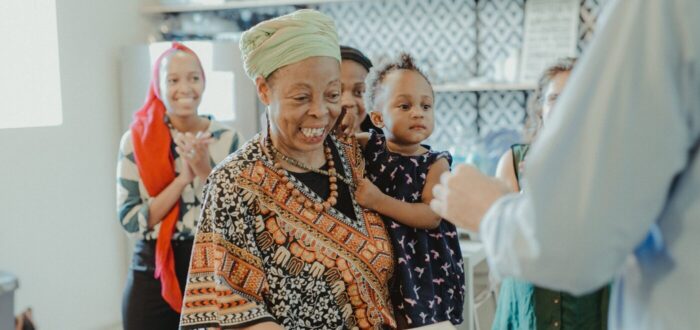
Lifting up Black expertise and voices in literature.
It is critical to lift up Black expertise and Black voice in literature. Thanks to the work of African American authors, the world can better understand both the brilliance and triumphs of Black people in America. The Solutions Project is excited to share some of the most accomplished literary solutionaries for past and present.
Ta-Nehisi Coates
Hailed by Toni Morrison as “required reading,” a bold and personal literary exploration of America’s racial history by “the most important essayist in a generation and a writer who changed the national political conversation about race” (Rolling Stone)
Kimberly Drew & Jenna Wortham
Kimberly Drew and Jenna Wortham have brought together this collection of work – essays, memes, dialogues, recipes, tweets, poetry, and more – to tell the story of the radical, imaginative, provocative, and gorgeous world that Black creators are bringing forth today.
Denise Fairchild & Al Weinrub
This volume brings together racial, cultural, and generational perspectives. This diversity is bound together by a common operating frame: that the global fight to save the planet—to conserve and restore our natural resources to be life-sustaining—must fully engage community residents and must change the larger economy to be sustainable, democratic, and just.
Mia Birdsong
After almost every presentation activist and writer Mia Birdsong gives to executives, think tanks, and policy makers, one of those leaders quietly confesses how much they long for the profound community she describes. They have family, friends, and colleagues, yet they still feel like they’re standing alone. They’re “winning” at the American Dream, but they’re lonely, disconnected, and unsatisfied.
Heather Box and Julian Mocine-McQueen
Everyone has a story to tell. Sharing that story can change you, your community, or even the world. But how do you start? This inspirational guide invites readers to unlock their truth and share it, whether in a TED talk, a blog post, or a conversation with their loved ones.
Octavia Butler
When global climate change and economic crises lead to social chaos in the early 2020s, California becomes full of dangers, from pervasive water shortage to masses of vagabonds who will do anything to live to see another day. Fifteen-year-old Lauren Olamina lives inside a gated community with her preacher father, family, and neighbors, sheltered from the surrounding anarchy.
Octavia Butler
Originally published in 1998, this shockingly prescient novel’s timely message of hope and resistance in the face of fanaticism is more relevant than ever.
Adrienne Maree Brown
How do we make social justice the most pleasurable human experience? How can we awaken within ourselves desires that make it impossible to settle for anything less than a fulfilling life? Author and editor Adrienne Maree Brown finds the answer in something she calls “pleasure activism,” a politics of healing and happiness that explodes the dour myth that changing the world is just another form of work. Drawing on the black feminist tradition, she challenges us to rethink the ground rules of activism.
Bayo Akomolafe
Tackling some of the world’s most profound questions through the intimate lens of fatherhood, Bayo Akomolafe embarks on a journey of discovery as he maps the contours of the spaces between himself and his three-year-old daughter, Alethea. In a narrative that manages to be both intricate and unguarded, he discovers that something as commonplace as becoming a father is a cosmic event of unprecedented proportion.
Nora Samaran
Emerging from insights in gender studies, race theory, and psychology, and influenced by contemporary social movements, Turn This World Inside Out engages today’s crucial questions, helping move us beyond seemingly intractable barriers to collective change.
Charlene Carruthers
Drawing on Black intellectual and grassroots organizing traditions, including the Haitian Revolution, the US civil rights movement, and LGBTQ rights and feminist movements, Unapologetic challenges all of us engaged in the social justice struggle to make the movement for Black liberation more radical, more queer, and more feminist.